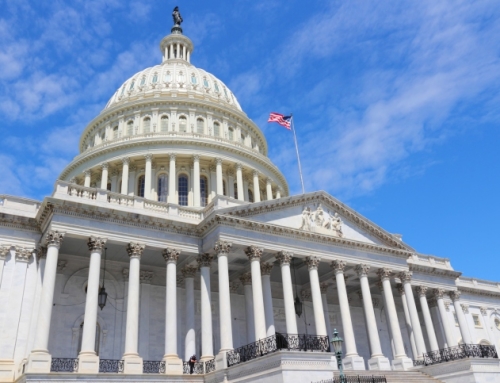The window for fiscal year 2023 H-1B cap registration opens March 1; labor unions push back against announced expansion of H-2B visas, and Florida companies failed to comply with H-2A agricultural worker visa program requirements.
H-1B registration. The initial registration period for fiscal year 2023 H-1B cap visas will open on March 1 and run through March 18, US Citizenship and Immigration Services announced. Prospective petitioners and representatives will be able to complete and submit their registrations using the online H-1B registration system.
Prospective H-1B cap-subject petitioners or their representatives are required to use a myUSCIS online account to register each beneficiary electronically for the selection process and pay the associated $10 H-1B registration fee for each registration submitted on behalf of each beneficiary. Registrants will be able to create new accounts beginning Feb. 21.
If USCIS receives enough registrations by March 18, the government will randomly select registrations and send selection notifications to registrants through myUSCIS online. USCIS will notify account holders concerning registration selection by March 31.
Employers should prepare for the registration period by collecting documents and information from potential H-1B employees, according to SHRM.
“We recommend that employers review upcoming hiring needs as soon as possible to determine if new H-1B petitions will need to be filed under the fiscal year 2023 quota for potential employment start dates of Oct. 1, 2022,” Melina LaMorticella, an attorney in the Portland, Oregon, office of Tonkon Torp, told SHRM. “All new H-1B petitions are subject to an annual quota, or cap, of 65,000 regular H-1B visas and an additional 20,000 H-1B visas reserved for holders of advanced degrees from accredited US universities. New cap H-1B petitions are not required for H-1B extensions and most H-1B changes of employer.”
H-2B increase. The Department of Homeland Security and the US Department of Labor followed through on plans to make available 20,000 additional H-2B temporary nonagricultural worker visas for the first half of fiscal year 2022, USCIS announced Jan. 27. This supplemental cap increase marks the first time that DHS is making additional H-2B visas available in the first half of the fiscal year.
H-2B visas allow foreign workers to come to the US for a maximum of three years. The visas don’t require a bachelor’s degree and are most commonly used in industries such as landscaping, amusement parks and resorts, forestry and seafood processing.
“DHS is taking action to address the needs of our economy by making an additional 20,000 H-2B visas available to workers,” said Homeland Security Secretary Alejandro Mayorkas. “We are providing employers with the resources and support needed to sustain their businesses while expanding lawful pathways to the United States. At the same time, DHS and DOL are protecting against the exploitation of H-2B workers.”
The additional H-2B visas will became available on Jan. 28 for US employers that are facing irreparable harm without additional workers and seeking to employ additional workers on or before March 31, 2022. The supplemental allocation consists of 13,500 visas available to returning workers who received an H-2B visa, or were otherwise granted H-2B status, during one of the last three fiscal years. The remaining 6,500 visas, which are exempt from the returning worker requirement, are reserved for nationals of Haiti, El Salvador, Guatemala and Honduras.
Organized labor had opposed efforts to expand the number of available H-2B visas when the plans were first announced in December, and had urged Secretary Mayorkas to go further to add protections for all seasonal workers, Bloomberg Law reported.
H-2A noncompliance. Three Florida citrus-farm labor contractors failed to comply with the requirements of the federal H-2A agricultural worker visa program, shortchanging 123 workers of $72,609 in total wages, the DOL’s Wage and Hour Division reported.
The agency found that Benjamin M. Ramirez Harvesting Inc., AO Harvesting LLC and Gustavo Cisneros Harvesting Inc. failed to provide H-2A employees with at least three-quarters of the work hours guaranteed on their work contracts, and failed to pay them the wages required by law under the program. The H-2A temporary agricultural program allows agricultural employers to legally bring nonimmigrant foreign workers to the US to perform agricultural labor or services of a temporary or seasonal nature when domestic workers are in short supply.
Investigators found that Benjamin M. Ramirez Harvesting violated the program’s required three-quarters guarantee and owed $30,915 in back wages to 31 employees. The agency also assessed a $1,429 civil penalty for the violation. AO Harvesting violated the same requirement and owed $37,005 in back wages to 38 employees. In that case, the agency also assessed a $1,429 civil penalty for the violation.
Labor contractor Gustavo Cisneros Harvesting violated the three-quarters guarantee and also failed to properly reimburse workers for inbound transportation costs as required by law. As a result, the employer paid $4,688 to the 13 employees affected and paid a $1,250 civil penalty assessed by the agency.









